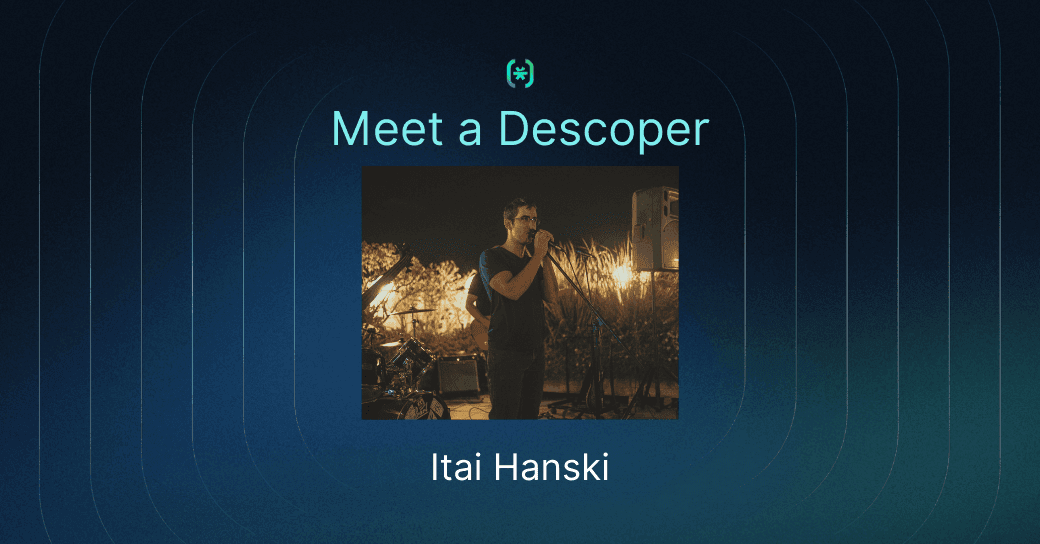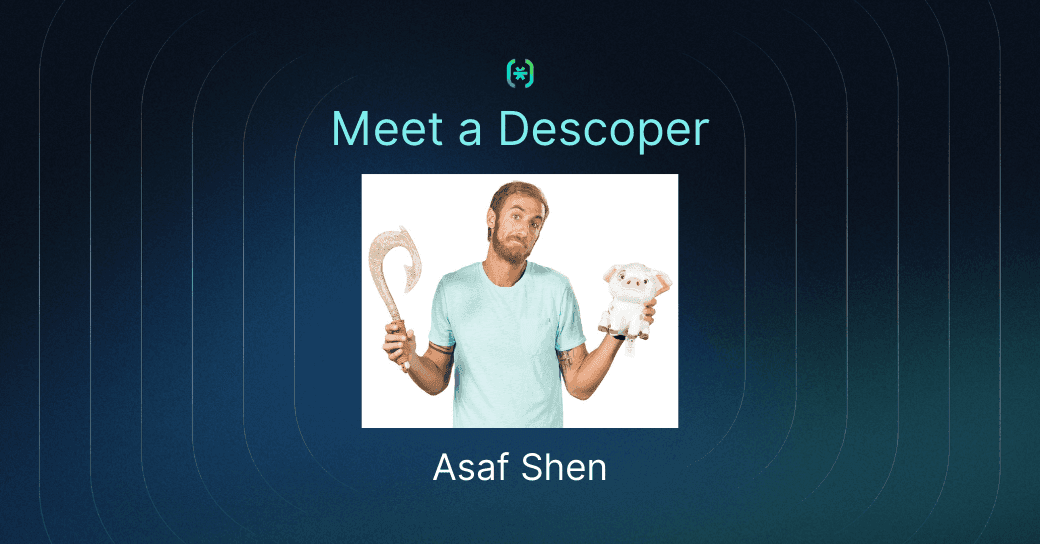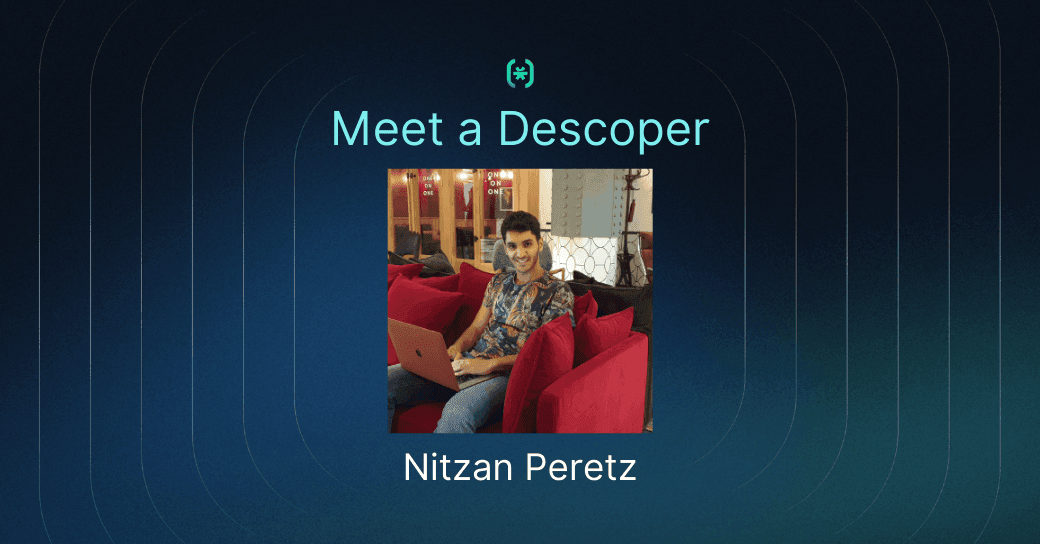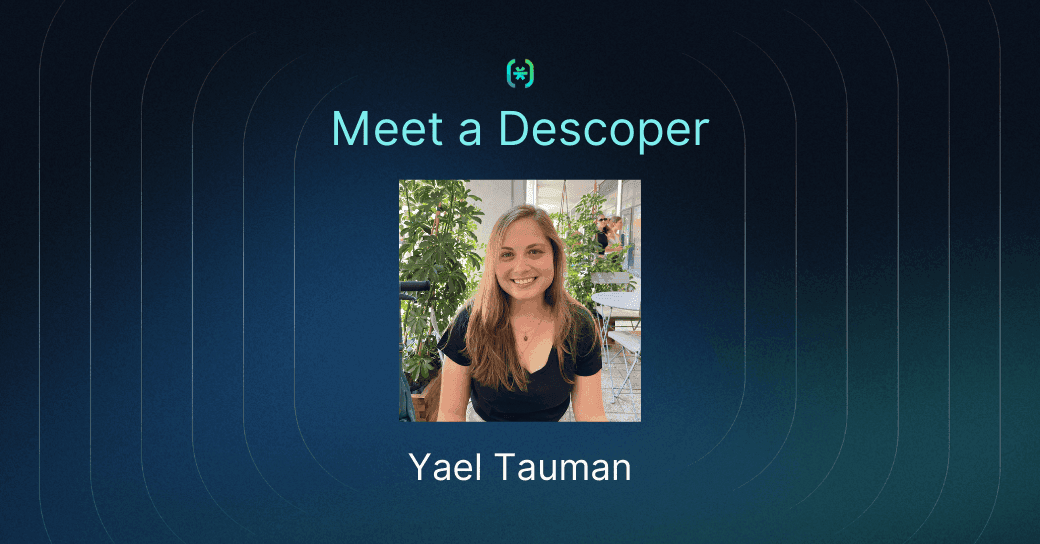Table of Contents
How I got here
Welcome to Meet a Descoper! This interview series shines a spotlight on app builders – whether they are Descope employees, community members, or users of our service. In these chats, Descopers chronicle their daily work, highlight stuff they are proud of, and share advice for developers wishing to pursue similar careers.
Today, we’re delighted to talk with coder-founder-father-musician Itai Hanski. Itai spoke to us about the joy in embracing different experiences, the importance of putting yourself in the customer’s shoes, and the value of mentorship. Take it away, Itai!
How I got here
Q. To start off, can you tell us something about yourself?
I’m 38 years old and the father to four-and-a-half year old twins (a boy and a girl). I live in Herzliya, right outside Tel Aviv. I’ve been a developer for over a decade and it has been quite a ride so far. I’ve experienced a wide array of fields in my career and am really happy with where I’ve ended up.
Q. Why did you decide to become a developer?
Like so many things in life, it happened kind of by accident. After finishing my time in the army and traveling for a bit, I didn’t know what I wanted to do next. My wife’s (then girlfriend’s) brother told me that I was going to learn computer science at Hebrew University. It wasn’t a question, it was more like he decided for me. I knew I liked video games and I also knew I didn’t have a better idea of what to do at the time, so I said okay!
I quickly discovered a world that drew me in to both the love of being a developer as well as finding my passion for entrepreneurship. At the end of my degree, I had a course on entrepreneurship where teams had to create and pitch an idea. My team had a cool concept for a digital board game that ran on multiple phones at the same time. We had mockups and a working proof-of-concept but weren’t sure who would build the application. I tried it out and have been riding the entrepreneurial roller-coaster ever since.
Q. You mentioned that you’ve done a bunch of different stuff in your career. Can you share some details?
After finishing my studies, I joined a startup where I focused on Android development for a while. After that I spent a lot of time doing client-side development. I also started my own venture to build a company and had a life-enriching experience building a great product before eventually putting it aside. All these experiences led to me joining healthy.io, where I spent the last 6.5 years.
At healthy.io, I learned a lot about different platforms, became adept at distilling ideas into requirements, and spent a lot of time problem-solving. I became the architect there and was responsible for building and rebuilding entire systems from the ground up.
Q. Why did you join Descope?
After many years at healthy.io, I felt it was time for a change. I realized that – as much as I enjoyed my time there – it had become too familiar and it was time to move on. I wanted to challenge myself to get out of my comfort zone in a new environment and look to solve a different market problem.
Meir (one of the Co-Founders of Descope) and I knew each other from university. When he reached out to me about this opportunity, I was excited to say yes!
My time at Descope so far has been unlike anything I’ve experienced before. I’m proud to be a part of a truly excellent team, both from a technical and character point of view. I also love how work and fun truly happen side-by-side here.
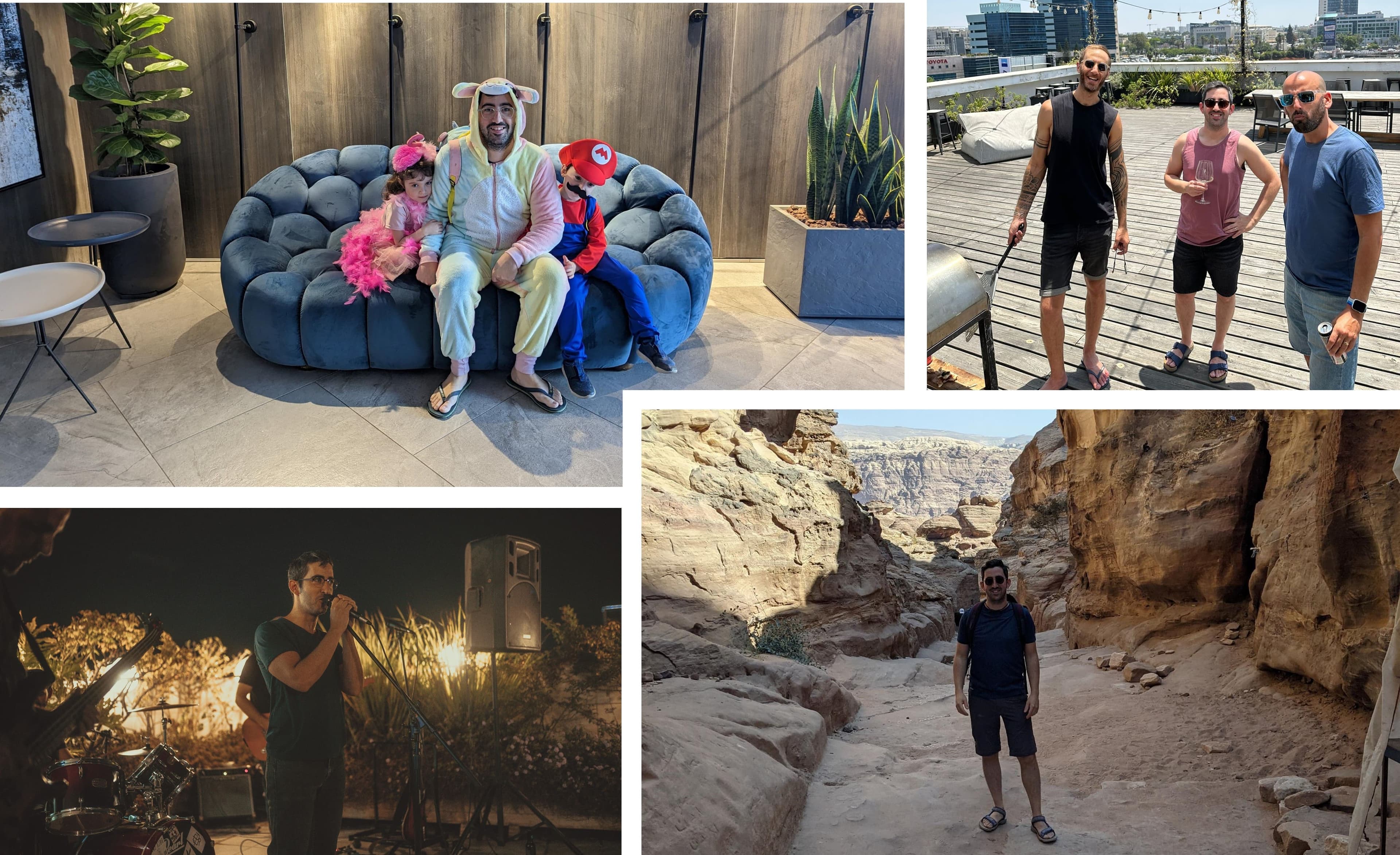
Day in the life
Q. What’s your favorite part of your day-to-day work as a developer?
I really enjoy the diversity of being a developer. Speaking about Descope specifically, since our product is meant for every type of developer, we really need to think both broadly and deeply about different frameworks, SDKs, and tech stacks without being too opinionated. This has been a great opportunity for me to expand my knowledge on new languages and tools.
I enjoy the end-to-end responsibility of being a developer at the right company. At Descope, I have helped take features from inception to the backend to the frontend to an SDK.
Looking at all my past experiences, I could easily have been a user of Descope had the product existed back then. I have felt the need for authentication and user management in the past. Looking at my work through this lens – as a potential customer – strongly reflects the importance of what I do back to me. I can also easily put myself in the customer’s shoes and give my take on product decisions as a result.
Q. What’s one piece of work you are most proud of?
Hmmm, I’d like to draw on something outside of work for this answer. I have been working on a solo music project for the past two years (on and off, on account of being a parent of twins). Recently, I’ve been able to devote more time to it and feel that I’m getting better at it.
All that aside, we sometimes take self-improvement for granted in a professional context since we spend most of our lives doing these tasks. There have been many instances where I’ve written some code, looked at it some time later, felt it was horrible, and then rewritten it – getting better in the process.
But getting better at a passion or hobby requires more discipline and consistency. What I’ve always felt with coding I now feel with my music too. I hope you will find me on Spotify one day soon!
Looking back
Q. What’s something you wished you knew when you started your career?
I don’t think there is such a thing. I have had a variety of experiences and have made both good decisions and mistakes in equal measure. All of these experiences and decisions have brought me where I am today. I don’t think you can separate the person from their journey. Even the most difficult circumstances impart some learning upon us.
Q. What advice do you have for developers who are just starting their journey?
I’d like to share two pieces of advice that are interlinked.
Developers early on in their career should try finding a role where they can get good mentorship. Learning good habits early on and working with people who are experienced and know how to mentor is invaluable.
However, after some time I believe developers should do the exact opposite. They should put themselves in a position without mentorship, without a parachute or a safety net, and try figuring things out on their own. That’s when you can make a huge leap in your personal growth.
I wouldn’t change the order of the two scenarios above. If you are in a role without mentorship and have never been mentored before, you can learn the wrong habits and things can become chaotic quickly.
Q. Anything else you’d like to share that we haven’t asked you already?
I don’t think we should choose between single coils and humbuckers. Instead, use both and pan one to the left and the other to the right. Easy.
We hope you enjoyed getting to know Itai a little better. For more developer chats, authentication concept overviews, and more, subscribe to our blog.
